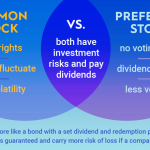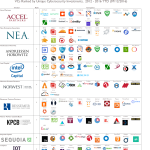If Money is a Root of Evil, Then What is Poverty?
The age-old adage money is the root of all evil has sparked countless debates about wealth, morality, and human behavior. But if money is often blamed for corruption, greed, and inequality, what does that make poverty? Is it a virtue, a curse, or something more complex? This article delves into the paradoxical relationship between wealth and morality, exploring how poverty shapes societies, influences ethics, and challenges our understanding of good and evil. By examining the consequences of both abundance and scarcity, we aim to uncover whether poverty is a lesser evil, a different kind of struggle, or a catalyst for deeper societal issues.
If Money is a Root of Evil, Then What is Poverty?
The saying money is the root of all evil is often misinterpreted, as it originates from the biblical phrase the love of money is the root of all evil. This implies that it is not money itself that is evil, but the excessive desire for it. However, this raises an important question: if money can lead to negative outcomes, what does poverty represent? Poverty is often seen as the absence of money and resources, but its implications go far beyond financial lack. It affects health, education, opportunities, and overall quality of life. This article explores the relationship between money, evil, and poverty, and how poverty can be even more destructive than the misuse of wealth.
See Also What Are the Top Vc Funds for Societal Impact?
What Are the Top Vc Funds for Societal Impact?The Definition of Poverty
Poverty is not just the absence of money; it is a state of deprivation that affects multiple aspects of life. It includes lack of access to basic needs such as food, shelter, healthcare, and education. Poverty can be absolute, where individuals struggle to survive, or relative, where people live below the standard of their society. Both forms of poverty have severe consequences on individuals and communities.
| Aspect | Impact of Poverty |
|---|---|
| Health | Higher rates of disease and shorter life expectancy |
| Education | Limited access to quality education |
| Opportunities | Fewer job prospects and economic mobility |
The Cycle of Poverty
Poverty is often a self-perpetuating cycle. Individuals born into poverty face significant barriers to escaping it. Lack of education limits job opportunities, which in turn restricts income. Poor health further exacerbates the situation, creating a vicious cycle that is difficult to break. This cycle affects not only individuals but also entire communities and generations.
See Also Why Do Venture Capitalists Prefer Preferred Stocks Over Common Stocks
Why Do Venture Capitalists Prefer Preferred Stocks Over Common Stocks| Stage | Description |
|---|---|
| Lack of Education | Children in poverty often miss school to work or lack resources for education |
| Limited Job Opportunities | Without education, finding well-paying jobs is challenging |
| Poor Health | Inadequate healthcare leads to chronic illnesses |
Poverty is closely linked to social inequality. It often disproportionately affects marginalized groups, including women, minorities, and people with disabilities. Social inequality perpetuates poverty by limiting access to resources and opportunities, creating a system where the rich get richer and the poor remain trapped in their circumstances.
| Group | Impact of Inequality |
|---|---|
| Women | Lower wages and limited access to education |
| Minorities | Discrimination in employment and housing |
| People with Disabilities | Limited job opportunities and social exclusion |
The Psychological Effects of Poverty
Poverty has profound psychological effects on individuals. It can lead to chronic stress, anxiety, and depression. The constant struggle to meet basic needs creates a sense of hopelessness and helplessness, which can further entrench individuals in poverty. Children growing up in poverty are particularly vulnerable to these effects, which can impact their development and future prospects.
See Also Who Are the Top Vc Investors in Cyber Security Startups?
Who Are the Top Vc Investors in Cyber Security Startups?| Psychological Effect | Description |
|---|---|
| Chronic Stress | Constant worry about meeting basic needs |
| Anxiety | Fear of the future and financial instability |
| Depression | Feelings of hopelessness and low self-worth |
Poverty and Crime
There is a strong correlation between poverty and crime. While not all individuals in poverty turn to crime, the lack of resources and opportunities can drive some to illegal activities as a means of survival. Poverty-stricken areas often experience higher crime rates, which further destabilizes communities and perpetuates the cycle of poverty.
| Type of Crime | Relation to Poverty |
|---|---|
| Theft | Driven by the need to meet basic needs |
| Drug Trafficking | Seen as a lucrative option in the absence of legal opportunities |
| Violence | Often linked to desperation and lack of resources |
What is poverty and greed?
What is Poverty?
Poverty is a state of deprivation where individuals or communities lack the financial resources and essentials for a minimum standard of living. It is characterized by:
- Lack of basic needs: Such as food, clean water, shelter, and healthcare.
- Limited access to education: Preventing individuals from improving their circumstances.
- Economic instability: Resulting in unemployment or underemployment.
What is Greed?
Greed is an intense and selfish desire for something, especially wealth, power, or possessions. It often leads to:
- Exploitation: Taking advantage of others for personal gain.
- Inequality: Widening the gap between the rich and the poor.
- Moral decay: Prioritizing material wealth over ethical values.
The Relationship Between Poverty and Greed
Poverty and greed are interconnected in complex ways. Greed can exacerbate poverty by:
- Concentrating wealth: In the hands of a few, leaving others with fewer resources.
- Encouraging corruption: Where resources meant for the poor are misused.
- Creating systemic inequality: Through policies that favor the wealthy.
How Poverty Affects Society
Poverty has far-reaching effects on society, including:
- Increased crime rates: Due to desperation and lack of opportunities.
- Poor health outcomes: Resulting from inadequate healthcare and nutrition.
- Social unrest: As communities struggle with inequality and injustice.
How Greed Shapes Economic Systems
Greed influences economic systems by:
- Driving consumerism: Encouraging excessive consumption and waste.
- Promoting monopolies: Limiting competition and innovation.
- Undermining sustainability: Prioritizing short-term profits over long-term environmental health.
What is the meaning of money is the root of evil?

The phrase money is the root of evil is a common misinterpretation of a biblical verse, 1 Timothy 6:10, which actually states, For the love of money is a root of all kinds of evil. This means that it is not money itself that is evil, but the excessive desire or obsession with wealth that can lead to harmful behaviors, corruption, and moral decay. The phrase highlights how the pursuit of money can overshadow ethical values and lead individuals to act in ways that harm themselves or others.
The Origin of the Phrase
The phrase originates from the New Testament of the Bible, specifically 1 Timothy 6:10. It emphasizes that the love of money, rather than money itself, is the root cause of various forms of evil. This distinction is crucial because it shifts the focus from money as an object to the attitude people have toward it. The verse warns against prioritizing wealth over moral integrity and spiritual well-being.
- The phrase is often misquoted as money is the root of evil, but the original text specifies the love of money.
- It serves as a moral lesson about the dangers of greed and materialism.
- The context of the verse is a warning to those who prioritize wealth over ethical and spiritual values.
Why Money Itself Is Not Evil
Money is a neutral tool used for exchange and trade. It becomes problematic only when individuals develop an unhealthy attachment to it. The phrase underscores that the misuse or overemphasis on money can lead to negative outcomes, such as exploitation, dishonesty, and inequality.
- Money facilitates trade and economic growth, making it essential for modern societies.
- Its neutrality means it can be used for both good and bad purposes, depending on the user's intentions.
- The real issue lies in the prioritization of wealth over other values, such as compassion and fairness.
The Consequences of Loving Money
An excessive love for money can lead to destructive behaviors and societal issues. This includes corruption, exploitation, and the erosion of trust in relationships. The phrase serves as a reminder that unchecked greed can have far-reaching consequences.
- Individuals may engage in unethical practices, such as fraud or theft, to accumulate wealth.
- Societal inequality can worsen when wealth is concentrated in the hands of a few.
- Personal relationships may suffer as people prioritize financial gain over emotional connections.
Historical Examples of Money Leading to Evil
Throughout history, there have been numerous instances where the pursuit of wealth has led to significant harm. From colonial exploitation to modern-day corporate scandals, the love of money has often been a driving force behind unethical actions.
- Colonial powers exploited resources and people for financial gain, leading to long-term suffering.
- Corporate scandals, such as Enron, highlight how greed can result in widespread harm to employees and investors.
- Wars and conflicts have often been fueled by the desire to control valuable resources or territories.
Balancing Wealth and Ethics
The phrase encourages individuals to strike a balance between financial success and ethical behavior. It suggests that while money is necessary for survival and comfort, it should not come at the expense of one's moral compass.
- Ethical wealth-building involves fair practices and consideration for others.
- Philanthropy and charitable giving are ways to use money for positive impact.
- Personal fulfillment should not be solely tied to financial achievements but also to relationships and contributions to society.
What is meant by if money is the root of all evil then greed is the seed?

The Meaning Behind the Phrase
The phrase if money is the root of all evil, then greed is the seed suggests that while money itself is not inherently evil, it becomes a source of corruption when paired with greed. The root symbolizes the foundational cause, and the seed represents the initial spark that grows into harmful behavior. Essentially, greed is what transforms money into a tool for negative actions.
- Money is neutral; its impact depends on how it is used.
- Greed amplifies the potential for money to cause harm.
- The combination of money and greed often leads to unethical decisions.
The Role of Greed in Human Behavior
Greed is a powerful motivator that drives individuals to prioritize personal gain over ethical considerations. It acts as the seed because it plants the desire for excessive wealth, which can grow into harmful actions. This behavior often leads to exploitation, inequality, and moral decay.
- Greed fosters selfishness and disregard for others.
- It encourages the accumulation of wealth at any cost.
- Greed can distort one's sense of morality and fairness.
Money as a Tool for Good or Evil
Money itself is not inherently evil; it is a tool that can be used for both positive and negative purposes. However, when combined with greed, it often becomes a means to exploit others or engage in unethical practices. The phrase highlights the dual nature of money and its potential consequences.
- Money can fund charitable causes and improve lives.
- It can also be used to manipulate or control others.
- The ethical use of money depends on the intentions behind it.
The Connection Between Money and Power
Money often translates into power, and when greed is involved, this power can be misused. The phrase implies that the pursuit of wealth for selfish reasons can lead to corruption, as individuals may prioritize their own interests over the well-being of others.
- Money provides access to influence and control.
- Greed drives individuals to seek power at the expense of others.
- This dynamic can result in societal imbalances and injustice.
How Greed Fuels the Cycle of Evil
Greed perpetuates a cycle where the desire for more wealth leads to unethical actions, which in turn create more harm. The seed of greed grows into a system where money is used to exploit, deceive, and harm others, reinforcing the idea that it is the root of evil.
- Greed creates a never-ending desire for more.
- This desire often justifies harmful actions.
- The cycle continues as greed spreads and influences others.
What does the Bible say about evil money?

The Nature of Evil Money in the Bible
The Bible often warns against the dangers of ill-gotten wealth or money obtained through dishonest means. Proverbs 10:2 states, Treasures of wickedness profit nothing, but righteousness delivers from death. This highlights that money gained through evil actions has no lasting value and can lead to spiritual and moral corruption. The Bible emphasizes that wealth should be acquired through honest labor and integrity.
- Ill-gotten wealth is temporary and lacks true value.
- Money obtained through dishonest means can lead to spiritual downfall.
- Righteousness and integrity are more valuable than material wealth.
The Love of Money as the Root of Evil
1 Timothy 6:10 famously states, For the love of money is a root of all kinds of evil. This verse underscores that the obsession with wealth can lead individuals to commit sinful acts, such as greed, exploitation, and injustice. The Bible does not condemn money itself but warns against the idolatry of wealth and the moral compromises it can bring.
- The love of money can lead to greed and corruption.
- Wealth should not become an idol or a source of moral compromise.
- Focusing on spiritual wealth is more important than material riches.
Wealth Gained Through Oppression
The Bible condemns wealth acquired through oppression or exploitation of others. Proverbs 22:16 warns, Whoever oppresses the poor to increase his own wealth, or gives to the rich, will only come to poverty. This highlights the injustice of exploiting the vulnerable for personal gain and the inevitable consequences of such actions.
- Wealth gained through oppression is morally wrong.
- Exploiting the poor for personal gain leads to divine judgment.
- Justice and fairness should guide financial dealings.
The Consequences of Evil Money
The Bible teaches that evil money carries consequences, both in this life and the next. Proverbs 13:11 states, Wealth gained hastily will dwindle, but whoever gathers little by little will increase it. This suggests that quick, dishonest gains are unsustainable and often lead to loss, while honest, gradual accumulation of wealth is blessed.
- Dishonest wealth is often short-lived and leads to loss.
- Honest labor and patience are rewarded with lasting prosperity.
- Evil money can bring spiritual and material consequences.
How to Handle Money Righteously
The Bible provides guidance on how to handle money in a way that honors God. Proverbs 3:9-10 encourages believers to honor the Lord with their wealth and firstfruits, promising that their barns will be filled with plenty. This emphasizes the importance of generosity, stewardship, and trusting God with one's finances.
- Honor God with your wealth through generosity and giving.
- Practice good stewardship and avoid greed.
- Trust in God's provision rather than relying solely on material wealth.
Frequently Asked Questions (FAQs)
What does the phrase If Money is a Root of Evil, Then What is Poverty? imply?
The phrase If Money is a Root of Evil, Then What is Poverty? challenges the common belief that money is inherently evil by highlighting the struggles and suffering associated with poverty. It suggests that while money can lead to negative outcomes, such as greed or corruption, poverty often results in even greater societal issues, such as lack of access to basic needs, education, and healthcare. The statement encourages a deeper reflection on the complex relationship between wealth, morality, and human well-being.
Is poverty considered worse than the potential evils of money?
Poverty is often viewed as a more pressing and widespread issue than the potential evils of money. While money can lead to unethical behavior, poverty directly impacts individuals' ability to survive and thrive. Poverty is associated with hunger, poor living conditions, and limited opportunities, which can perpetuate cycles of suffering and inequality. In contrast, money, when used responsibly, can be a tool for positive change and development. The phrase underscores the idea that addressing poverty should be a priority over demonizing wealth.
How does this phrase relate to societal values and priorities?
The phrase If Money is a Root of Evil, Then What is Poverty? critiques societal values and priorities by questioning whether the focus on money's negative aspects overshadows the urgent need to address poverty. It suggests that society often scrutinizes wealth while neglecting the systemic issues that perpetuate poverty. By shifting the focus to poverty, the phrase calls for a reevaluation of societal priorities, emphasizing the importance of creating equitable systems that ensure basic human rights and opportunities for all.
Can money be used to combat poverty effectively?
Yes, money can be a powerful tool in combating poverty when used effectively and ethically. Financial resources can fund education, healthcare, infrastructure, and social programs that uplift communities and break the cycle of poverty. However, the key lies in ensuring that these resources are distributed fairly and transparently. The phrase highlights the dual nature of money—it can either perpetuate inequality or serve as a means to create a more just and equitable society. The challenge is to harness its potential for good while minimizing its misuse.
Leave a Reply


Our Recommended Articles